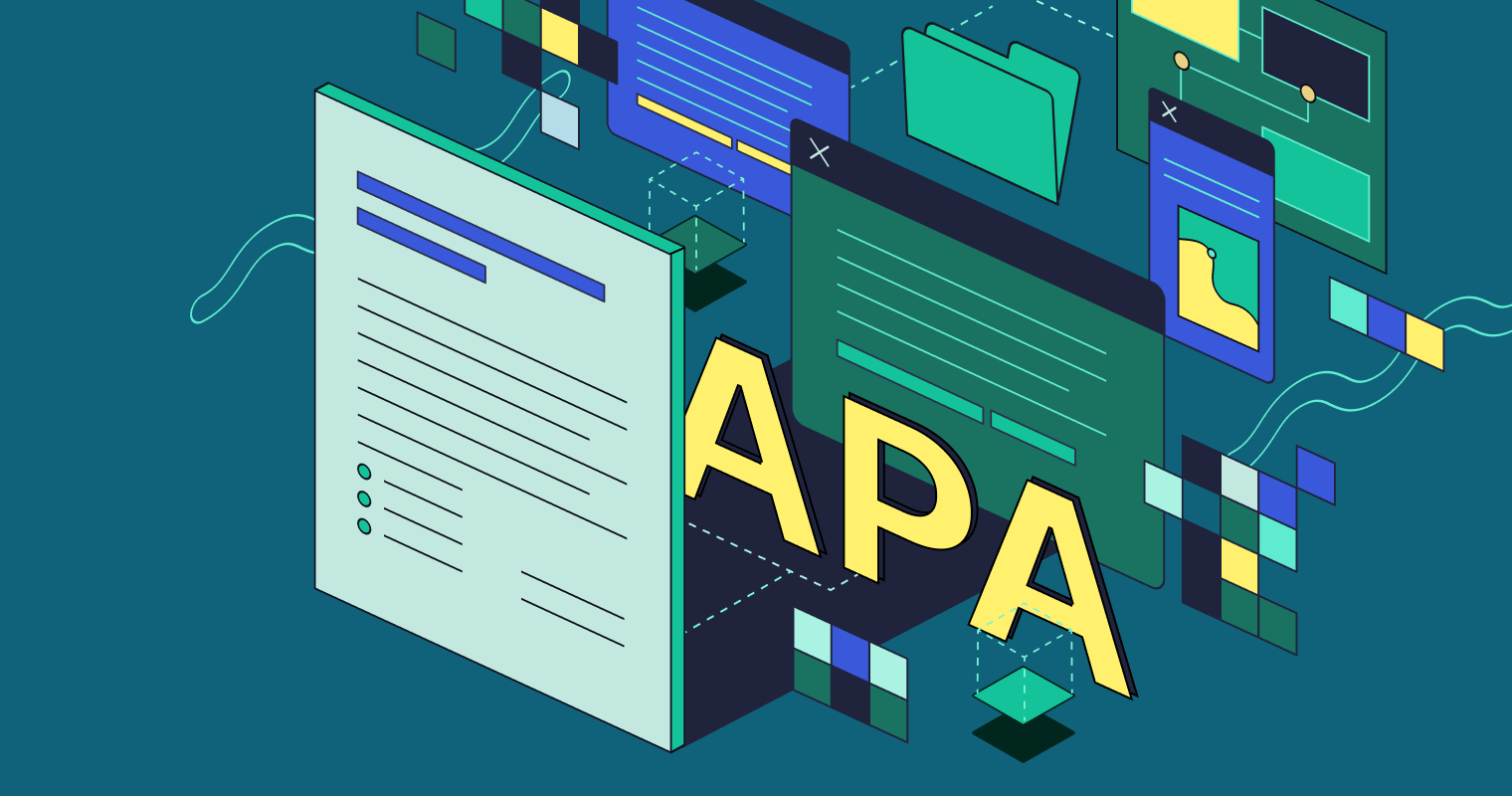How to Cite ChatGPT
Comprehensive Guide to Citing ChatGPT in Academic and Professional Writing

In the evolving landscape of artificial intelligence (AI), tools like ChatGPT have become integral to academic research, professional writing, and creative projects. Developed by OpenAI, ChatGPT is a large language model capable of generating human-like text based on user prompts. As its use becomes increasingly widespread, the need for proper citation practices has emerged as a critical aspect of ethical and transparent content creation.
Citing ChatGPT ensures accountability, acknowledges the source of AI-generated content, and prevents potential issues of plagiarism. However, citing AI tools like ChatGPT poses unique challenges due to their dynamic nature, frequent updates, and the absence of traditional authorship.
We will explore the nuances of citing ChatGPT across various citation styles, including the essential elements required for proper attribution. It also highlights the importance of including details such as the version of ChatGPT used, the date of content generation, and the access date, as these factors are crucial for ensuring accuracy and reproducibility in academic and professional contexts.
By following the citation practices outlined in this report, users can maintain the credibility of their work, adhere to ethical standards, and contribute to the growing discourse on the responsible use of AI tools. Whether you are a student, researcher, or professional, understanding how to cite ChatGPT is an essential skill in the age of AI-driven innovation.
Understanding the Importance of Citing ChatGPT
Transparency and Ethical Use
Citing ChatGPT ensures transparency in how AI-generated content is used in academic and professional work. Transparency is crucial because it allows readers to understand which parts of the work were human-generated and which were AI-assisted. This distinction is vital in maintaining intellectual honesty and avoiding any perception of plagiarism.
Moreover, ethical considerations are at the forefront of using AI tools like ChatGPT. Acknowledging the use of AI-generated content respects the intellectual contribution of the AI tool itself. This is particularly important in academic contexts, where attribution is a cornerstone of scholarly integrity. Citing AI tools clarifies what content originated from the user and what was generated by the machine, ensuring ethical boundaries are respected.
Academic Integrity and Avoiding Plagiarism
In academic writing, plagiarism is a cardinal sin. Citing ChatGPT is not just about giving credit where it’s due; it’s about safeguarding your academic reputation. Institutions are increasingly aware of the use of AI tools, and failing to cite them can lead to accusations of academic dishonesty. Citing generative AI tools like ChatGPT is mandatory whenever their content is paraphrased, quoted, or directly incorporated into a paper. While ChatGPT’s outputs are non-retrievable, citing them as personal communications ensures that the source of the information is clear. This practice not only upholds academic integrity but also aligns with the broader principles of ethical scholarship.
Building Trust with Your Audience
Let’s face it: readers are not mind readers. They deserve to know the origin of the content they’re consuming. Citing ChatGPT helps build trust by being upfront about the use of AI tools. This transparency is particularly important in professional and academic settings, where credibility is paramount. And acknowledging the use of ChatGPT fosters trust and accountability.
Imagine submitting a research paper without mentioning that a significant portion of the content was generated by ChatGPT. If this omission is discovered, it could undermine the credibility of the entire work. On the other hand, a simple citation can preemptively address any concerns about the authenticity of the content, thereby enhancing the reader’s confidence in the work.
Addressing the Ethical Gray Areas
The use of AI tools like ChatGPT raises several ethical questions. For instance, can machine-generated text be considered creative work? While this debate continues, citing ChatGPT provides a practical solution to navigate this ethical gray area. And proper attribution allows readers to evaluate the work with a clear understanding of its origins.
Furthermore, citing ChatGPT ensures that the use of AI tools does not overshadow the human effort involved in the work. By clearly delineating the contributions of the AI tool, authors can highlight their own intellectual input, thereby maintaining a balanced perspective on the collaborative nature of human-AI interactions.
Enhancing the Credibility of AI-Generated Content
Let’s be honest: AI-generated content still carries a stigma in some circles. By citing ChatGPT, authors can help normalize the use of AI tools in academic and professional contexts. This practice not only enhances the credibility of the specific work but also contributes to the broader acceptance of AI-generated content as a legitimate resource.
For instance, citing ChatGPT in APA format involves treating it as a personal communication. This approach not only adheres to citation standards but also legitimizes the use of AI tools in scholarly work. Over time, such practices can help shift perceptions and foster a more inclusive view of AI-generated content.
Practical Benefits of Citing ChatGPT
Citing ChatGPT is not just about ethics and integrity; it also offers practical benefits. For one, it provides a clear record of the tools and resources used in the creation of a work. This can be particularly useful for future reference or for replicating the work. And providing clear information about the source, date, and platform used ensures that the work is properly documented.
Additionally, citing ChatGPT can serve as a learning tool for others. By acknowledging the use of AI tools, authors can inspire others to explore these resources, thereby contributing to a culture of innovation and collaboration.
Future Implications of Citing ChatGPT
As AI tools like ChatGPT become more integrated into academic and professional workflows, the importance of citing them will only grow. Institutions and publishers are likely to develop more detailed guidelines, and authors will need to stay updated on these changes. By establishing a habit of citing ChatGPT now, authors can prepare for a future where AI tools are a standard part of the creative process.
In summary, citing ChatGPT is not just a best practice; it’s a necessity. From ensuring transparency and ethical use to building trust and enhancing credibility, the benefits of citation are manifold. So, the next time you use ChatGPT, don’t forget to give it the credit it deserves—because even AI likes a little acknowledgment now and then.
You can also visit Oncely.com to find more Top Trending AI Tools. Oncely partners with software developers and companies to present exclusive deals on their products. One unique aspect of Oncely is its “Lifetime Access” feature, where customers can purchase a product once and gain ongoing access to it without any recurring fees. Oncely also provides a 60-day money-back guarantee on most purchases, allowing customers to try out the products and services risk-free.
Oncely is hunting for the most fantastic AI & Software lifetime deals like the ones below or their alternatives:

Citation Guidelines for Different Styles (APA, MLA, Chicago)
APA Style: The Art of Citing ChatGPT Without Losing Your Sanity
APA Style is the go-to citation format for social sciences, and it’s no stranger to adapting to new technologies. When it comes to citing ChatGPT, APA offers specific guidelines to ensure citations are both accurate and professional.
Personal Communication: The ChatGPT Classic
APA suggests treating ChatGPT responses as personal communications because they are not retrievable by others. Here’s how you can cite it in text:
(OpenAI, personal communication, January 15, 2025)
This format is straightforward, but remember: personal communications don’t go in the reference list! That’s right—your ChatGPT citation will live exclusively in the text, like a hermit crab in a cozy shell.
Retrievable Content: When ChatGPT Gets Fancy
If the output from ChatGPT is published or retrievable (e.g., a shared conversation URL), you can cite it like a webpage. For example:
OpenAI. (2025). ChatGPT (February 2025 version) [Large language model]. Retrieved from https://chat.openai.com
This method is perfect for when you want to flex your academic muscles and show that your ChatGPT interaction is more than just a fleeting conversation.
APA’s Love for Details: Include the Version and Date
APA emphasizes including the version of ChatGPT you used, as the model updates frequently. This ensures readers know exactly what you were working with—because citing the wrong version is like quoting Shakespeare but accidentally referencing a bad high school play adaptation.
MLA Style: Making ChatGPT Look Literary
MLA Style, the darling of the humanities, has its own rules for citing ChatGPT. Unlike APA, MLA doesn’t shy away from putting ChatGPT in the works cited list. Here’s how it’s done.
Works Cited Page: ChatGPT Takes Center Stage
A full MLA citation for ChatGPT might look like this:
OpenAI. "Response to Query on Romantic Poetry." ChatGPT, GPT-4, OpenAI, 15 Jan. 2025, https://chat.openai.com.
Notice how MLA treats the prompt as the title? It’s like giving ChatGPT a little literary flair. The date of access is also key because, let’s face it, ChatGPT’s responses are as changeable as the weather.
In-Text Citations: Keeping It Short and Sweet
In MLA, in-text citations are simple:
("Response to Query on Romantic Poetry")
This format ensures your readers aren’t bogged down by lengthy citations while still knowing where to look in the works cited list. It’s the literary equivalent of a wink and a nod.
Why Access Dates Matter
MLA requires the date you accessed ChatGPT because its responses evolve over time. Think of it as a timestamp for your academic time machine. Without it, your citation might feel like referencing a ghost.
Chicago Style: Footnotes, Endnotes, and Everything in Between
Chicago Style is the Swiss Army knife of citation formats, offering both footnotes and author-date systems. When it comes to citing ChatGPT, Chicago prefers to keep things flexible.
Footnotes: ChatGPT’s Natural Habitat
Chicago recommends citing ChatGPT in footnotes rather than the bibliography. A typical footnote might look like this:
ChatGPT, response to “Explain the symbolism in Moby Dick,” OpenAI, January 15, 2025, https://chat.openai.com.
This format is perfect for those who love the elegance of footnotes—because nothing says “scholar” like a page full of tiny text at the bottom.
Author-Date: When You’re Feeling Modern
For those who prefer the author-date system, Chicago suggests placing the citation in parentheses:
(ChatGPT, January 15, 2025)
This method is less formal but equally effective, making it ideal for researchers who want to keep things casual—like wearing jeans to a conference.
No Bibliography? No Problem!
Chicago doesn’t require ChatGPT citations in the bibliography unless the content is publicly accessible. This keeps your reference list tidy and spares you from adding “AI chatbot” to your list of esteemed authors.
Common Challenges Across Citation Styles
The Ever-Changing Nature of AI
One of the biggest challenges in citing ChatGPT is its dynamic nature. Unlike a book or article, ChatGPT’s responses can change based on updates to the model or variations in prompts. This makes it crucial to include details like the version and access date in your citations.
Ethical Considerations
Citing ChatGPT isn’t just about following rules—it’s also about transparency and academic integrity. By clearly indicating when and how you used ChatGPT, you show your audience that you’re not trying to pass off AI-generated content as your own. It’s like giving credit to your ghostwriter, except your ghostwriter is a robot.
Balancing Simplicity and Detail
Different citation styles have different requirements, but all aim to balance simplicity with sufficient detail. Whether you’re using APA, MLA, or Chicago, the goal is to make your citations clear and informative without overwhelming your readers.
Pro Tips for Citing ChatGPT Like a Pro
Keep a Record of Your Prompts
When using ChatGPT, save your prompts and responses. This not only helps with accurate citations but also provides a record of your research process. Think of it as your AI diary—except less embarrassing.
Use Citation Generators (But Double-Check!)
Many citation tools now include options for AI-generated content. While these can save time, always double-check the output against official style guides. After all, even robots make mistakes.
By mastering these citation styles, you’ll not only ensure your work is academically sound but also show that you’re ahead of the curve in navigating the brave new world of AI-generated content.
Examples of Proper ChatGPT Citations
APA Citation Examples for ChatGPT
1. Non-Retrievable Content: The "Personal Communication" Approach
When citing ChatGPT for non-retrievable content (e.g., responses generated during a private session), APA suggests treating it as a personal communication. This is like citing your friend Bob, except Bob is a highly advanced AI who doesn’t eat snacks during brainstorming sessions.
In-text citation example:
(OpenAI, personal communication, February 2, 2025)
Explanation: Since ChatGPT's responses in this case are not retrievable by others, you only include the citation in the text and omit it from the reference list. This is a perfect solution for those "you had to be there" moments with ChatGPT.
2. Retrievable Content: When ChatGPT Goes Public
If the ChatGPT output is retrievable (e.g., a shared link or published response), you can cite it like a webpage. This is for when ChatGPT decides to step out of the shadows and embrace the limelight.
Reference list example:
OpenAI. (2025). ChatGPT (February 2025 version) [Large language model]. Retrieved from https://chat.openai.com
In-text citation example:
(OpenAI, 2025)
This format is ideal for when you want to show off that your ChatGPT interaction is more than just a fleeting conversation. It’s like saying, “Look, I’ve got receipts!”
3. Including Prompts for Clarity
APA encourages transparency, so you can include the specific prompt you used to generate the response in your text. Think of it as giving ChatGPT its moment to shine.
Example:
I asked ChatGPT, “Explain the symbolism in Moby Dick,” and it responded with a detailed analysis (OpenAI, personal communication, February 2, 2025).
This approach is great for those who want to show off their excellent question-asking skills. After all, a good prompt is half the battle!
MLA Citation Examples for ChatGPT
1. Works Cited Entry: ChatGPT Takes the Stage
MLA style treats ChatGPT like a performer in a literary play—complete with a Works Cited entry that includes the prompt, version, and access date.
Works Cited example:
“Explain confirmation bias” prompt. ChatGPT (February 2025 version), OpenAI, 2 Feb. 2025, https://chat.openai.com.
In-text citation example:
(“Explain confirmation bias”)
This format is perfect for when you want to give ChatGPT its well-deserved standing ovation in your bibliography.
2. Highlighting the Prompt in Text
MLA encourages including the prompt in your in-text citation for clarity. It’s like saying, “Here’s the question that made ChatGPT spill the tea.”
Example:
When prompted with “Explain confirmation bias,” ChatGPT provided a detailed explanation of how individuals seek information that supports their pre-existing beliefs (“Explain confirmation bias”).
This method ensures that your readers know exactly what you asked ChatGPT. No secrets here!
Chicago Citation Examples for ChatGPT
1. Footnotes: ChatGPT’s Natural Habitat
Chicago style loves footnotes, and ChatGPT fits right in. This is for when you want to keep your citations classy and your bibliography uncluttered.
Footnote example:
ChatGPT, response to “Explain the symbolism in Moby Dick,” OpenAI, February 2, 2025, https://chat.openai.com.
This format is perfect for those who enjoy the elegance of footnotes—because nothing says “scholar” like a page full of tiny text at the bottom.
2. Author-Date Style: When You’re Feeling Modern
For those who prefer the author-date style, Chicago has you covered. This is for when you want your citations to feel contemporary and streamlined.
In-text citation example:
(ChatGPT, February 2, 2025)
Reference list example:
ChatGPT. 2025. Response to “Explain the symbolism in Moby Dick.” OpenAI. Accessed February 2, 2025. https://chat.openai.com.
This approach is great for those who want to keep things simple yet sophisticated.
Harvard Citation Examples for ChatGPT
1. Works Cited Entry: Harvard’s Pragmatic Approach
Harvard style keeps things straightforward, treating ChatGPT like a reliable academic source (which it is, most of the time).
Reference list example:
OpenAI. 2025. ChatGPT (February 2025 version) [Large language model]. Available at: https://chat.openai.com [Accessed 2 February 2025].
In-text citation example:
(OpenAI, 2025)
This format is perfect for when you want your citations to be as no-nonsense as a cup of black coffee.
2. Including the Prompt for Context
Harvard also allows you to include the prompt in your citation, which is great for adding context.
Example:
I asked ChatGPT, “What is the significance of the color green in The Great Gatsby?” (OpenAI, 2025), and it provided a detailed analysis.
This method ensures that your readers know exactly what you were curious about. No ambiguity here!
IEEE Citation Examples for ChatGPT
1. Standard Reference Format
IEEE style, known for its precision, treats ChatGPT like a technical marvel. This is for when you want your citations to be as sharp as a laser beam.
Reference list example:
[1] OpenAI, ChatGPT (February 2025 version), OpenAI, February 2, 2025. [Online]. Available: https://chat.openai.com.
In-text citation example:
[1] This format is perfect for when you want your citations to look like they belong in a cutting-edge research paper.
2. Including the Prompt for Clarity
IEEE also allows you to include the prompt in your text, which is great for technical papers.
Example:
I asked ChatGPT, “Explain the concept of entropy in thermodynamics” [1], and it provided a detailed explanation.
This approach ensures that your readers know exactly what you asked ChatGPT. Transparency is key!
Pro Tips for Crafting ChatGPT Citations
1. Keep a Record of Your Prompts
Always save your prompts and ChatGPT’s responses. This is like keeping a diary, but instead of your feelings, it’s full of AI-generated wisdom.
2. Use Citation Generators (But Double-Check!)
Citation generators can save you time, but they’re not perfect. Always double-check the output to ensure it aligns with your chosen citation style.
Conclusion
Citing ChatGPT is an essential practice that promotes transparency, ethical use, and academic integrity in scholarly and professional work. Proper attribution ensures readers can distinguish between human-generated and AI-assisted content, fostering intellectual honesty and avoiding plagiarism. Acknowledging ChatGPT’s contributions builds trust with audiences and aligns with the ethical principles of academic and professional writing. Furthermore, institutions and publishers increasingly require AI-generated content to be cited, making proper citation a necessity to avoid accusations of academic dishonesty.
The research underscores the practical benefits of citing ChatGPT, such as providing a clear record of tools used, enhancing the credibility of AI-generated content, and contributing to the normalization of AI tools in academic and professional contexts. Different citation styles, including APA, MLA, and Chicago, offer specific guidelines for citing ChatGPT, with variations depending on whether the content is retrievable or non-retrievable. These guidelines emphasize the importance of including details like the version, date, and access method to address the dynamic nature of AI outputs. By adhering to these practices, authors not only ensure compliance with institutional and publisher expectations but also contribute to the broader acceptance of AI tools as legitimate resources.
Looking ahead, the integration of AI tools like ChatGPT into academic and professional workflows will likely lead to the development of more detailed citation standards. Authors should stay informed about evolving guidelines and prioritize transparency in their use of AI tools. By consistently citing ChatGPT, researchers and professionals can uphold ethical standards, maintain credibility, and pave the way for the responsible use of AI in their respective fields.





